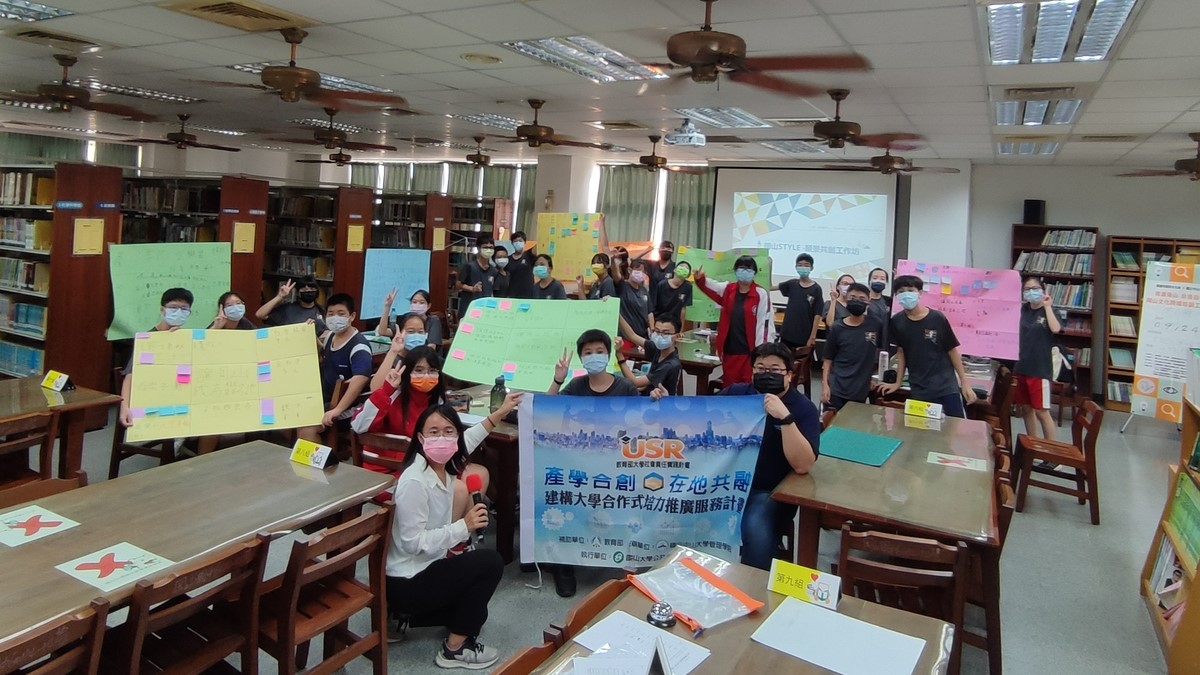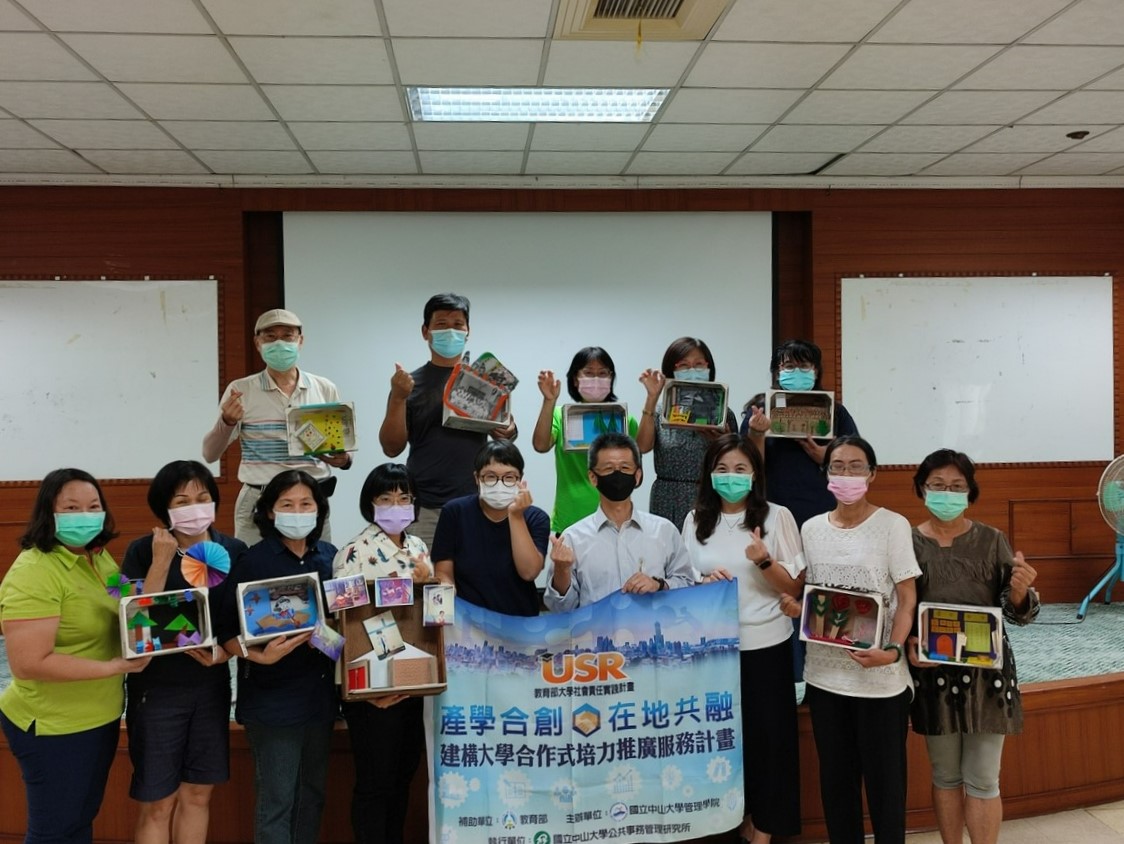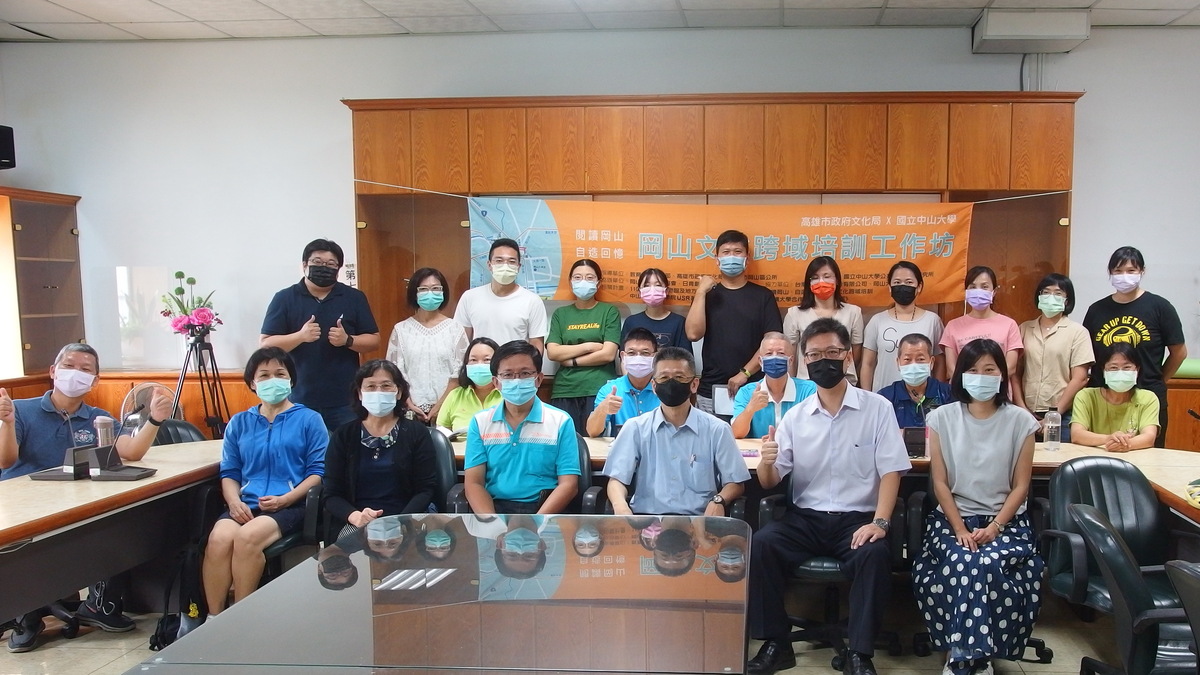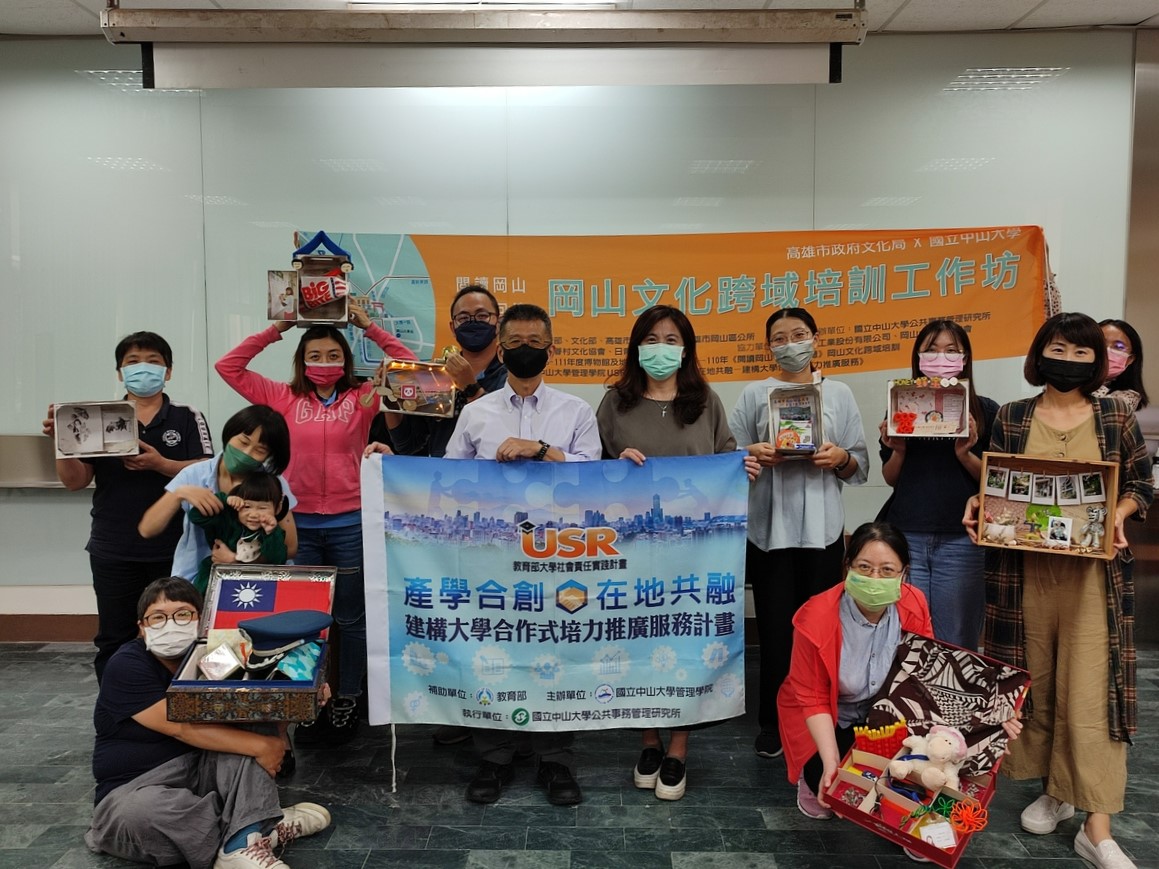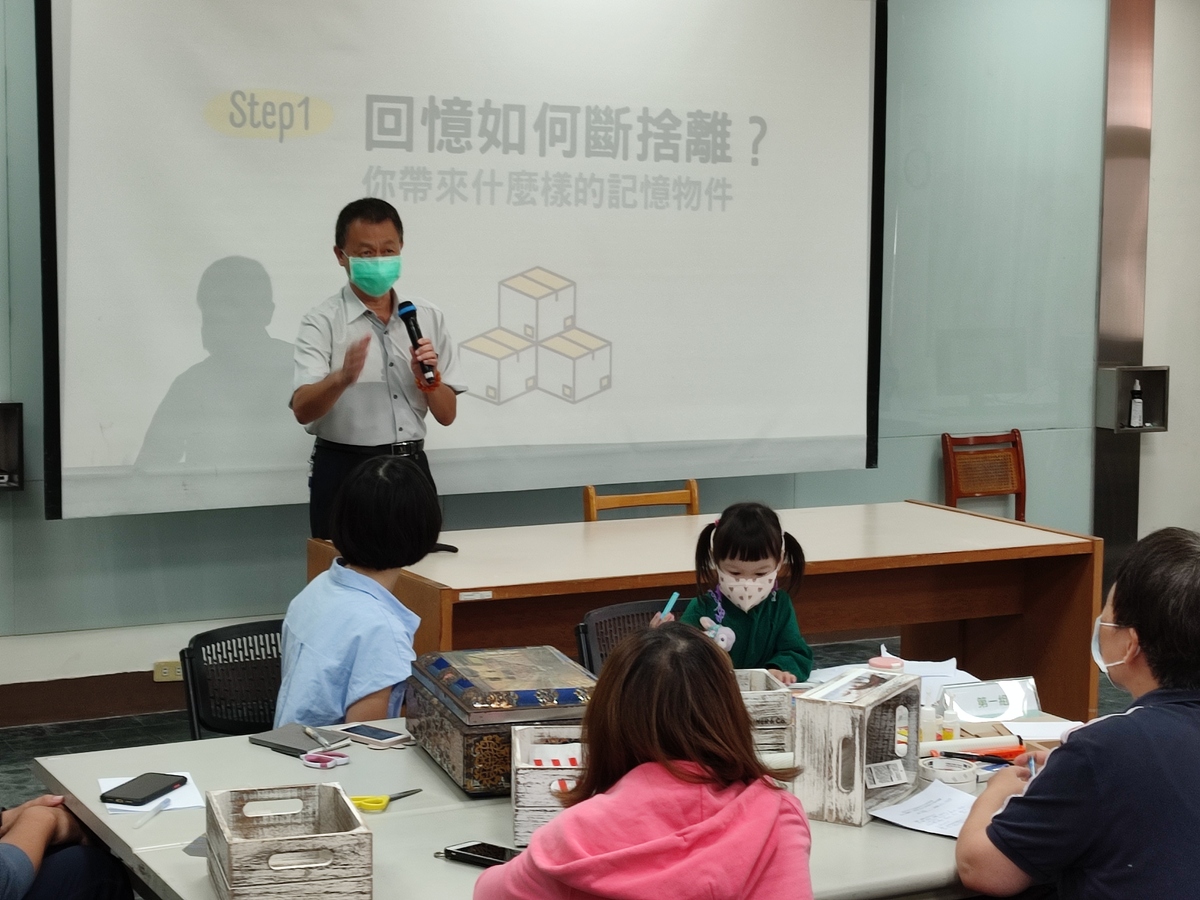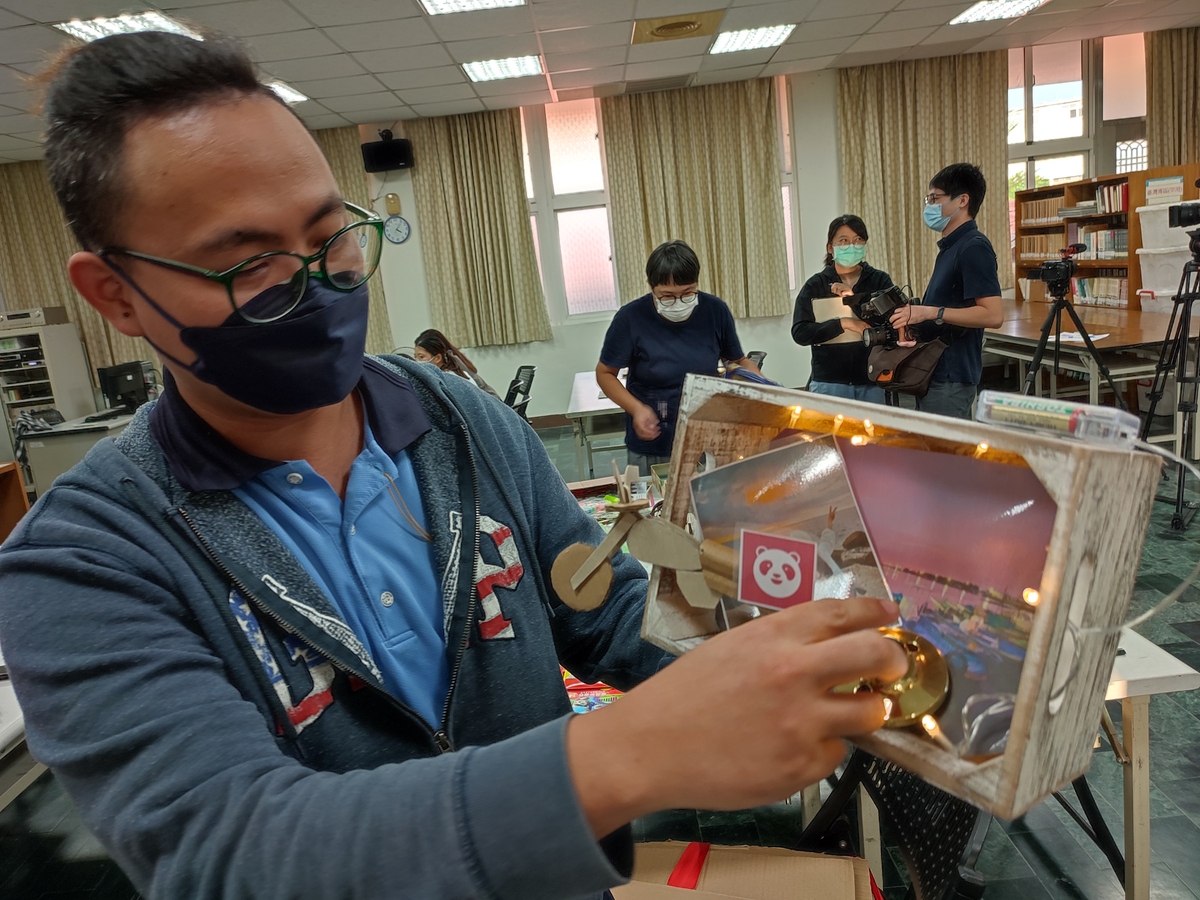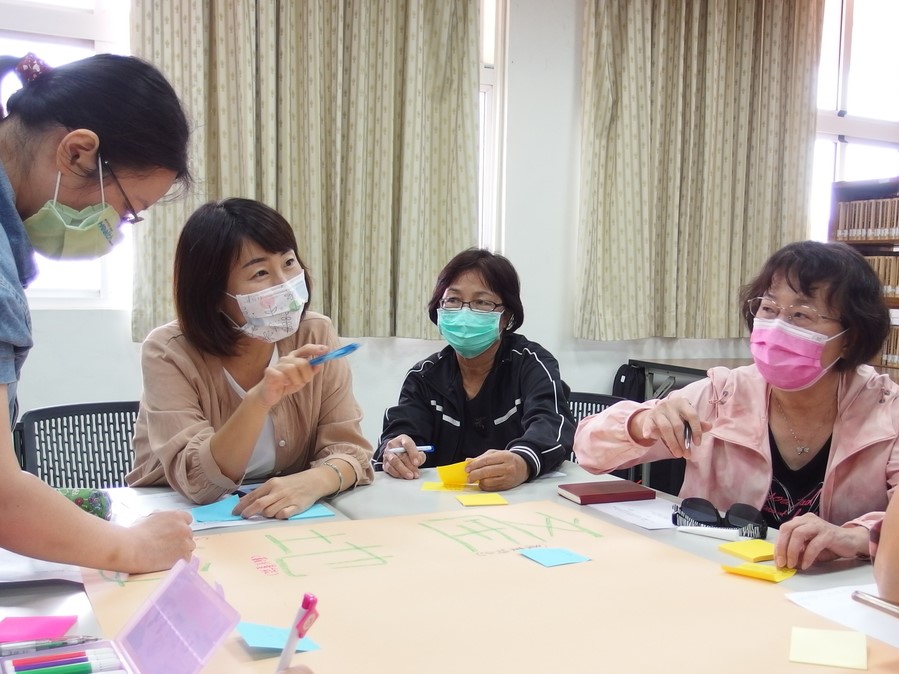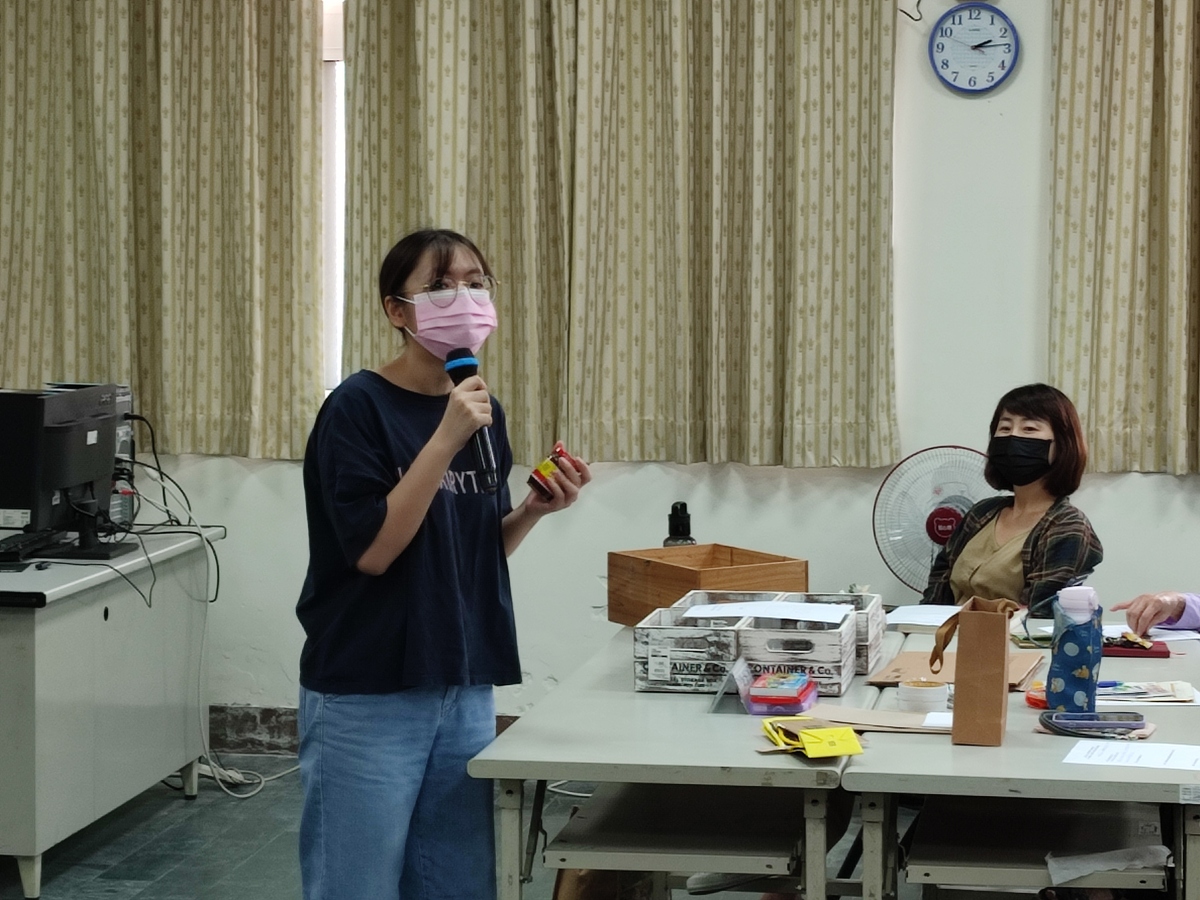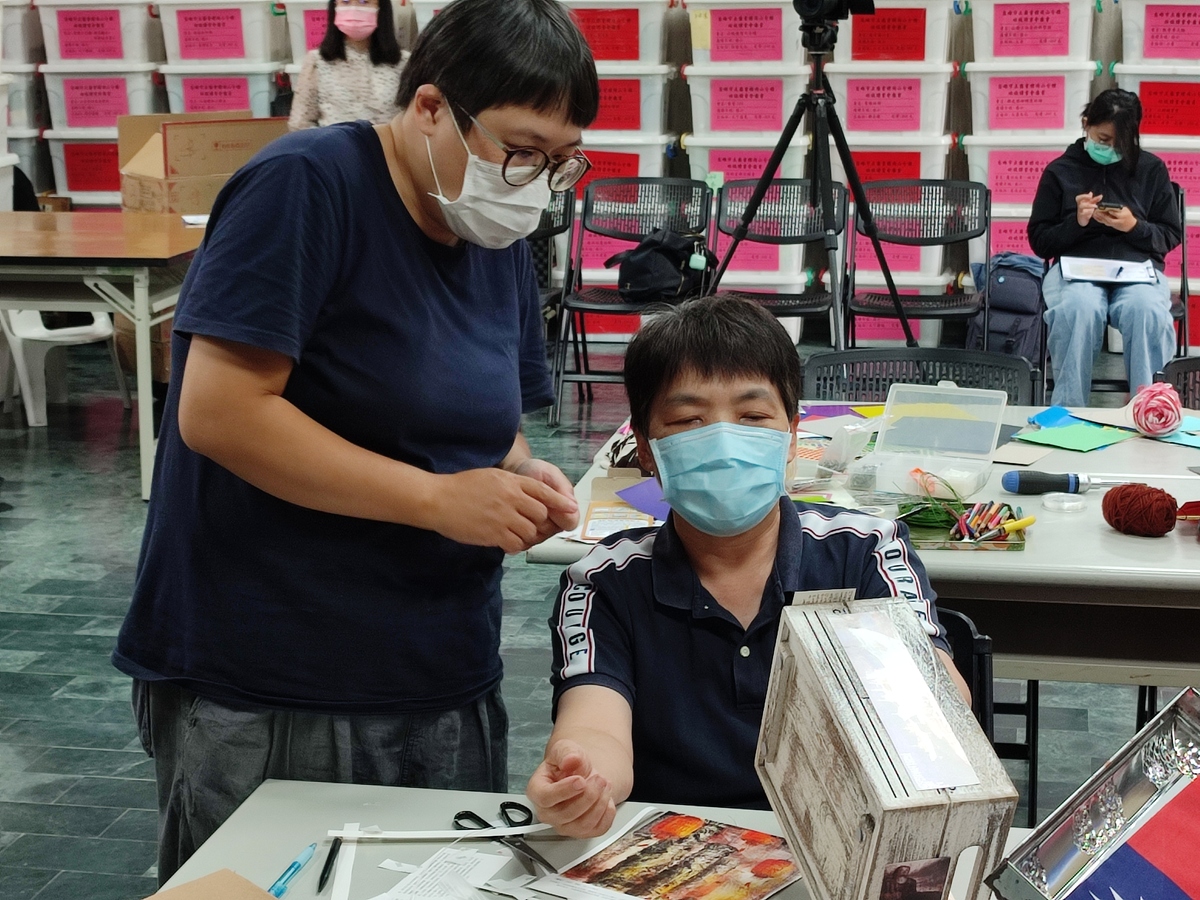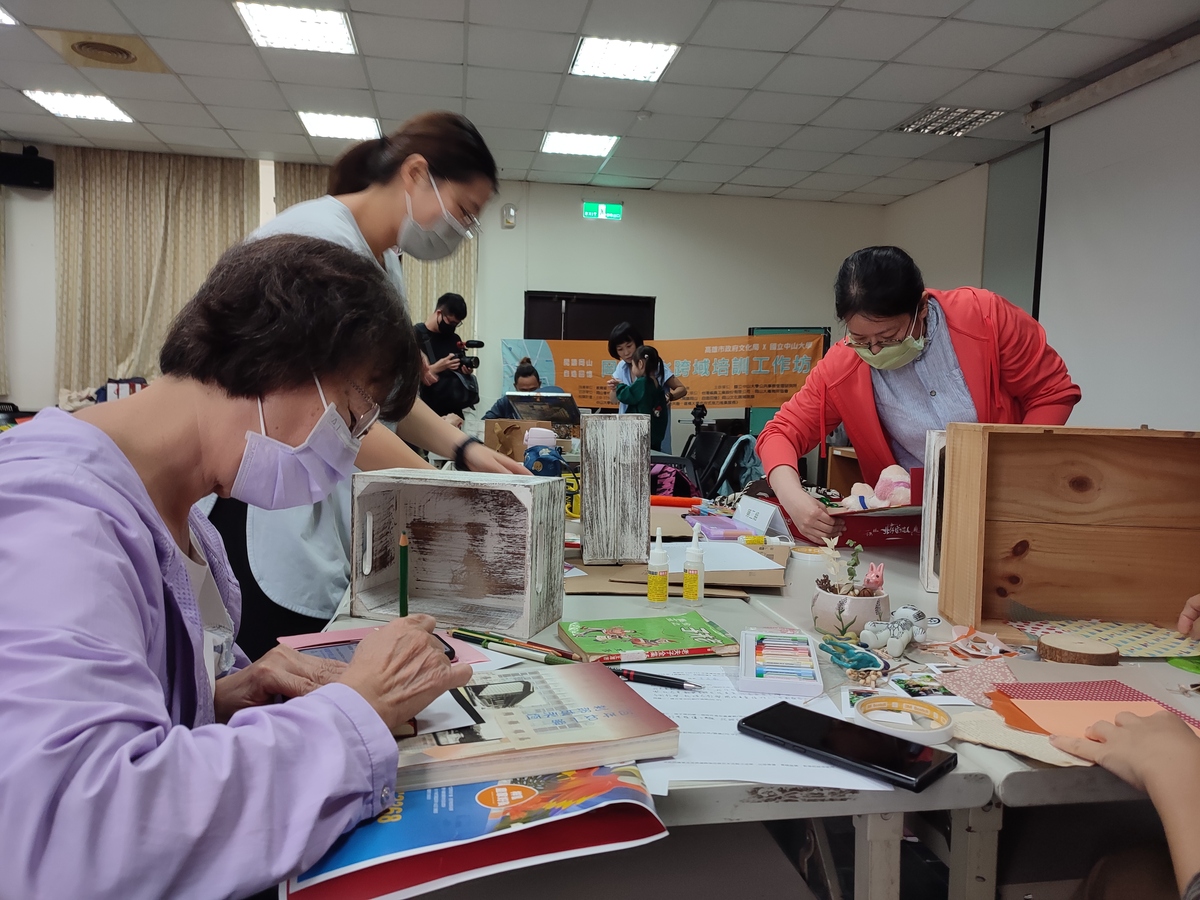The “Industry-University Co-Creation and Local Integration” USR project team of the College of Management, in collaboration with the Bureau of Cultural Affairs of Kaohsiung City Government, Gangshan District Office, and Taiwan Fu Hsing Culture & Education Foundation, organized six cultural and interdisciplinary training workshops “Reading Gangshan, Creating Memories” from September to November, attracting over a hundred participants. Combining resources with the Bureau of Cultural Affairs, NSYSU collaborated with local organizations in Gangshan District organizing residents’ vision workshops for them to create art and immortalize memories from Gangshan and build a connection with local affairs by creating their own memory boxes rich with human history.
The people of Gangshan get actively and enthusiastically involved in local affairs, including Gangshan Junior High School, Gangshan Community Development Association, Chief of Gangshan, Gangshan Community College, and Gangshan Youth Partners, and care for the cultural development of Gangshan. During the workshop, the participants took stock of the past of Gangshan and envisioned its future. Chief of Gangshan Chung-Chung Huang said that the past five, six years has been a time of fast changes for Gangshan and thanked NSYSU for facilitating the connections and a multi-party collaboration between the industry, government, and academia, and thanked Gangshan residents for gathering and making plans for the future. He said that “This is the turning point in the history of Gangshan” and that “Gangshan is undergoing fundamental changes”. If we don’t preserve its memories now, the residents will not recognize Gangshan in a few years, he said.
Through this culture talent cultivation workshop, the residents of Gangshan designed a blueprint with the future vision for Gangshan. In addition to the well-known “three treasures” of Gangshan: mutton meat, honey, and bean chilli paste, they took stock of other regional humanistic values, such as the Bamboo Festival, military dependents’ village, the Air Force culture, the screw industry, shadow puppet theatre, and historical buildings such as Tai-Yuen Chinese Medicine Clinic and Hechun Pharmacy. Secretary-General of Gangshan Houhong Community Development Association Ting-Kuo Su said he hoped that the rich human and cultural landscape of Gangshan could be developed, while the Taishang Community Development Association’s Director-General Feng-Huang Lin said that if local features are promoted, Gangshan could be a suitable place to move to and live in.
Managing Director of Gangshan Military Village Culture Association Yun-Hui Chang pointed out that Gangshan has many dedicated groups and that “Reading Gangshan” provided a platform for the residents to exchange and interact and give way to more possibilities in the future. Founder of Gangshan College Students’ Association Jung-Chin Chiang said that he is very happy to cooperate with NSYSU College of Management, and hopes that through academic mechanism, we can preserve the local culture in a more systematic way, retain resources for the youth, and promote sustainable regional development.
Taiwan Fu Hsing Industrial Group, a local enterprise, encouraged its employees to participate in the workshop, hoping to contribute to the preservation of the local culture of Gangshan. The cultural manager of Taiwan Fu Hsing Culture & Education Foundation I-Cheng Lin said that she hopes for more future collaboration opportunities with the USR project of the College of Management to promote the development of regional affairs and fulfill the company’s social responsibility. Associate Dean of the College of Management Jui-Kun Kuo emphasized that people representing the academia, enterprises, the government and regional organizations gathered to concentrate their efforts for a better future of Gangshan. “Reading Gangshan, Creating Memories” not only played the role of an inventory, but also of a memory box, hoping to gather more memories of Gangshan, and let more people see its unique and diverse cultural landscape.

